Welcome to Samanta's Research Group
Research
RESEARCH HIGHLIGHT (as on 29.06.2020)
- Ph.D. students supervised:24(currently working 2)
- Total number of papers published: 190+
- No of citations received: ~ 12762
- Citations per paper: 50
- h-index: 63
Research Topics and Techniques
Single Molecule Fluorescence Spectroscopy:
Fluorescence correlation spectroscopy (FCS) is a single molecule technique in which fluctuation of fluorescence intensity of a highly diluted solution in a small volume is monitored. We utilize this technique for the study of (i) diffusion of fluorophores in complex environments like ionic liquids, deep eutectic solvents, and solution of biomolecules, (ii) photo-induced conformational changes, and (iii) other excited state processes. We also study fluorescence off-on blinking, a single molecule property, to understand the optical properties of quantum dots and perovskite nanocrystals.
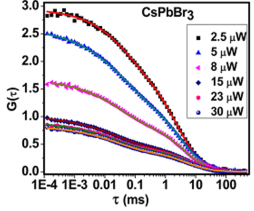
Power dependence of fluorescence correlation curves |
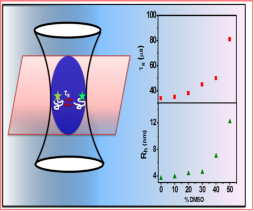
Conformational Dynamics of Protein by FCS Study |
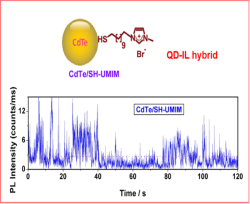
Single Particle Quantum Dot (QD) Fluorescence Blinking |
Time-Resolved Fluorescence Spectroscopy:
In our research, we extensively use single photon counting and up-conversion based time-resolved fluorescence techniques for measurements of the kinetics of a variety of photo-induced processes in the fs-ns time-domain. We have used these facilities for studying electron, proton and energy transfer processes, solvent reorganization dynamics, rotational dynamics, etc in a variety of complex environments.
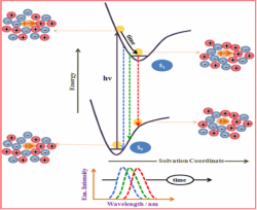
Mechanism of Solvation Dynamics in ILs |
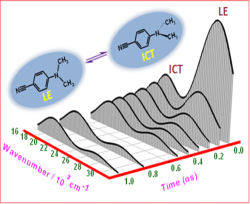
Time-Resolved Emission Spectra (TRES) of DMABN in [bmim][PF6] IL |
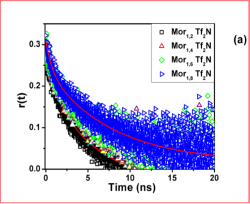
Time-Resolved Fluorescence Anisotropy in Morpholinium ILs |
Transient Absorption Spectroscopy:
We employ femtosecond pump-probe and nanosecond laser flash photolysis facilities for spectroscopic characterization of short-lived non-fluorescent transients having lifetimes ranging from a few femtoseconds to a few milliseconds and study of their formation and decay dynamics.
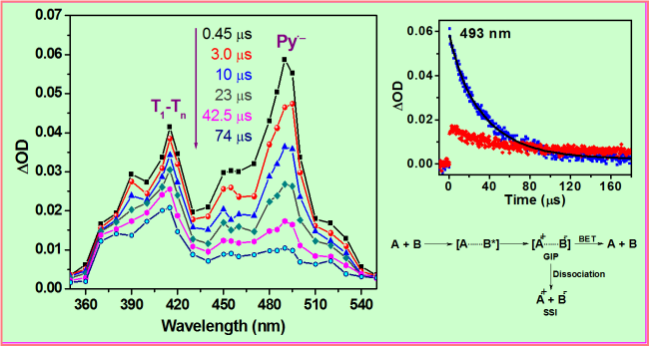
Nanosecond Laser Flash Photolysis Study of the Photoinduced Electron Transfer (PET) Reaction in ILs |
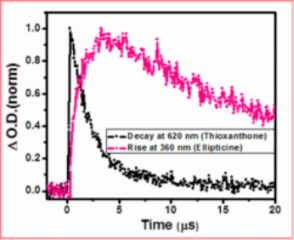
Triplet-Triplet Energy Transfer Studies by Laser Flash Photolysis |
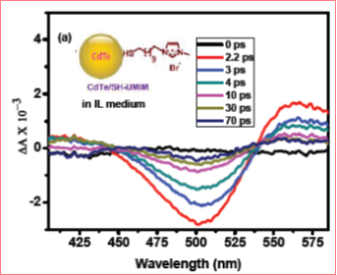
Time-resolved transient absorption spectra of CdTe QDs in IL medium |
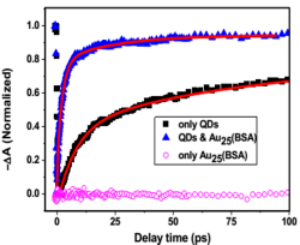
Ultrafast bleach recovery in QD |
Systems of our Interest:
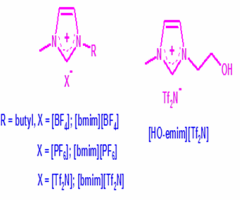
Ionic liquids |
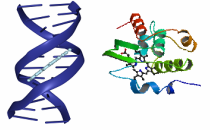
Biomolecules |
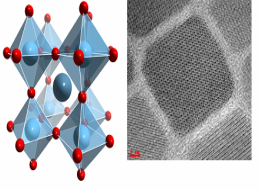
Nanomaterials |
